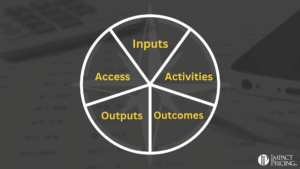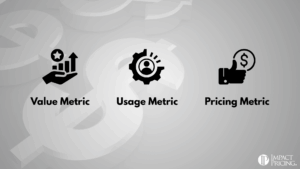Question: Another question is related to my previous question regarding pricing in “trust” (in legal pricing). You suggested switching pricing models, away from hourly billing, to fixed fees. I notice that a lot of clients do not want to pay fixed fees, but they are willing to pay hourly fees. In other words, the market for clients in the legal sector is a lot smaller if we only consider clients who are willing to pay fixed fees, as opposed to clients who are willing to pay hourly fees. From a purely economic point of view, this doesn’t make a lot of sense, yet organizations still do not move away from this. I suspect the personal interests of those involved in the decision-making process also play a part in this (those people do not want to make a mistake, they want to “cover their asses”, instead of making the best economical decision. My question to you: what do you think about changes in demand, when using different pricing models? PS. Many thanks for taking the time to spread knowledge & insights about pricing! Sebastiaan
Answer: Hi Sebastiaan, I have an easy answer to your question, but I’m saving it til the end. ????
First a quick story. Back when I was formulating all of my basic beliefs about pricing I absolutely fell in love with good, better, best (GBB). For so many reasons it’s the right way to offer products to buyers. However, I couldn’t figure out how to do GBB with hourly billing. It seems ridiculous to offer three hourly rates. If the buyer chooses the highest rate would I do better work for them? Does that mean people who buy hourly don’t get to choose between good, better and best? That’s what drove me to think about fixed fee pricing.
Advantages of Fixed Fee Pricing
Fixed fee pricing provides quite a few advantages. The seller has the possibility of capturing more of the value being delivered. The sellers and the buyers have the same incentive, to deliver a quality result as quickly as possible. The buyer can choose what quality or scope level they prefer. It makes it easier for the buyer to make a decision. Buyers know what the bill is and aren’t afraid to talk to the supplier in fear it would cost more. I’m sure there are more.
Sometimes Hourly Fees Make Sense…
However, there are some times when paying hourly makes a ton of sense. In particular, when the scope of the project is unknown, it is very hard to quote a fixed fee. Some companies offer a fixed fee audit to scope the project and then offer a second fixed fee quote to execute the work.
For what it’s worth, I hire several people on Upwork and pay them hourly because I don’t have a project, I have ongoing programs and new projects. I don’t know the scope of what I need them to do next week. However, I pay my bookkeeper the same monthly fee regardless of how much work needs to be done.
Here’s one more data point before answering your question directly. If you learn to have a value conversation with your potential clients, more clients will want to move toward fixed fees. During this conversation, you will demonstrate your firm understands the client, their problems, and that you can solve the problem. The client will become more comfortable with you. You will win more deals at higher prices.
However, value conversations are scary if you’ve never done them. Once you learn how to have them, you will realize they are fun and powerful. They are well worth your time and energy to learn.
What happens to demand when you shift pricing models?
Finally, the answer you’ve been waiting for. What happens to demand when you shift pricing models? As you rightly point out, some buyers are more comfortable buying the traditional way and would rather not change. That means by definition your market is smaller if you switch. BUT, you don’t have to switch. What if you offer both? A buyer can buy a car or lease the exact same car. The buyer chooses their own pricing model. You could do the same.
Be careful though. It’s easy to fall back on hourly billing because then you don’t have to have a value conversation. If you do this, you are leaving tons of money on the table and quite honestly doing a disservice to your clients and your company.
My recommendation – Go into every sales situation having a value conversation and assume you will use fixed fee billing. Only revert to hourly if the client insists (and you want that client) or if the project is so new and unique you have no idea what it will take to accomplish.
Finally, if you want to learn from the king of fixed fee pricing, read what Ron Baker has to say. He’s brilliant and probably disagrees that you should even offer hourly billing. Ron?














